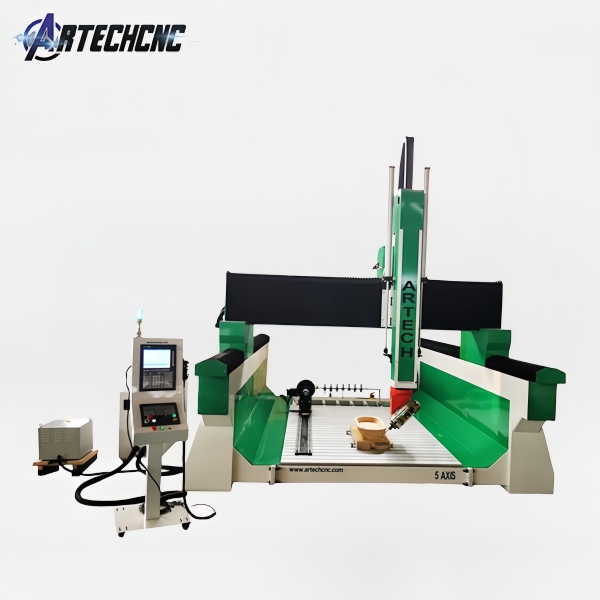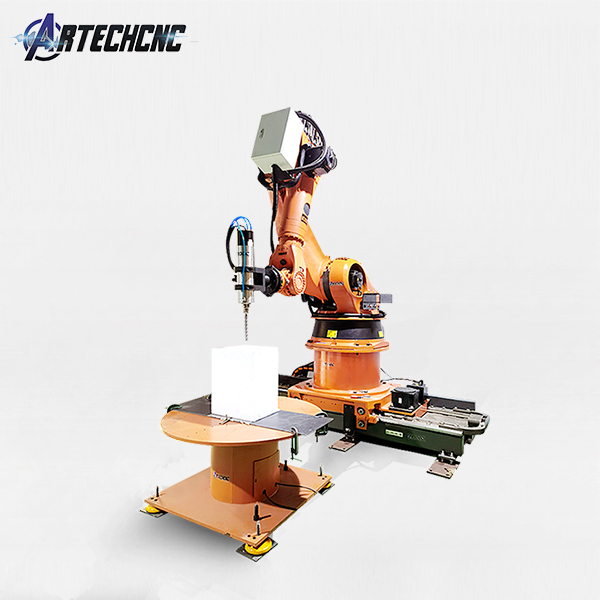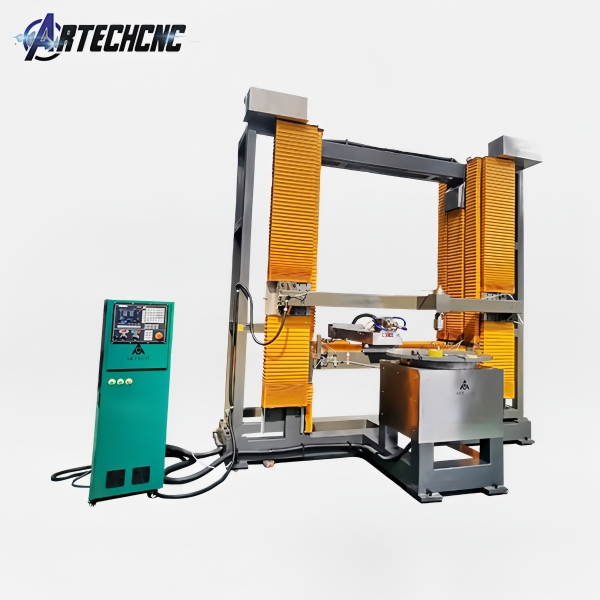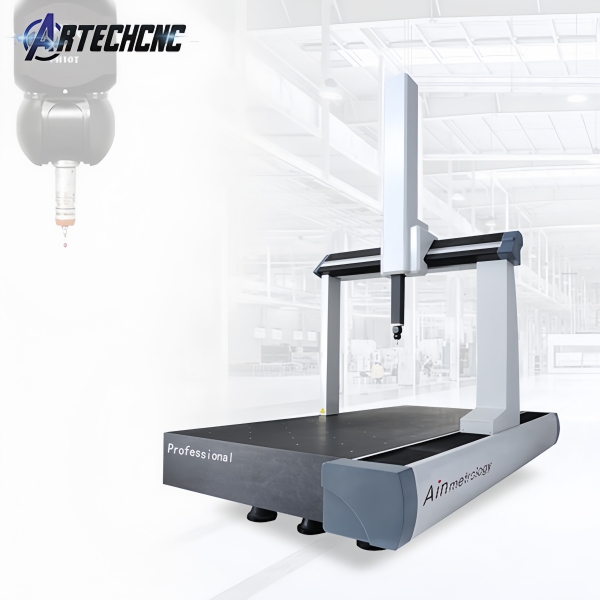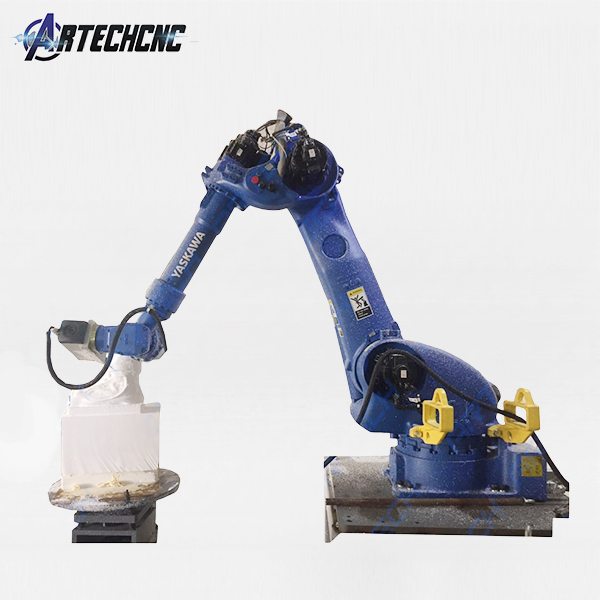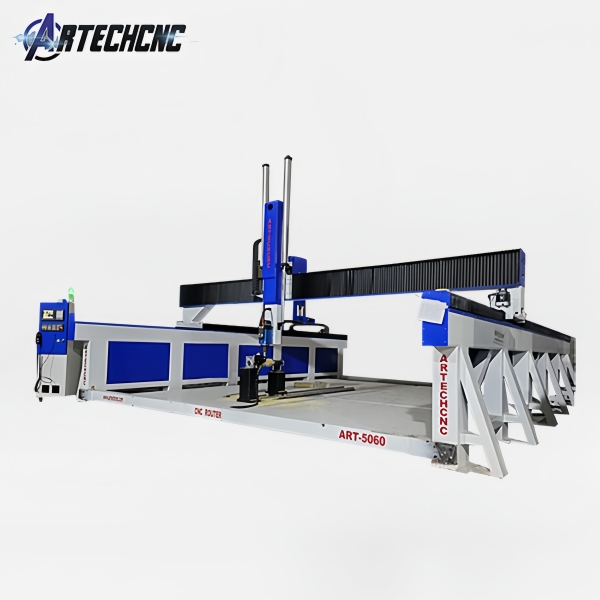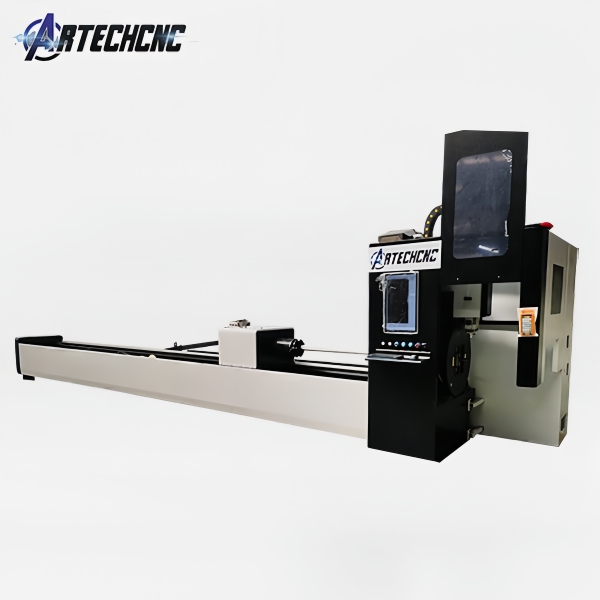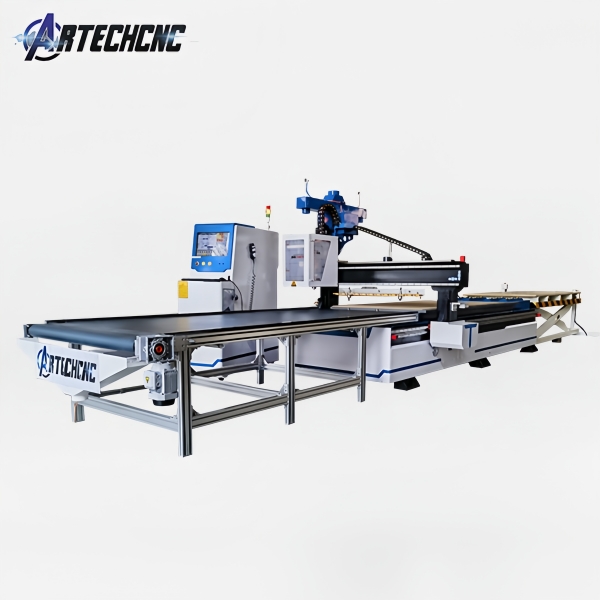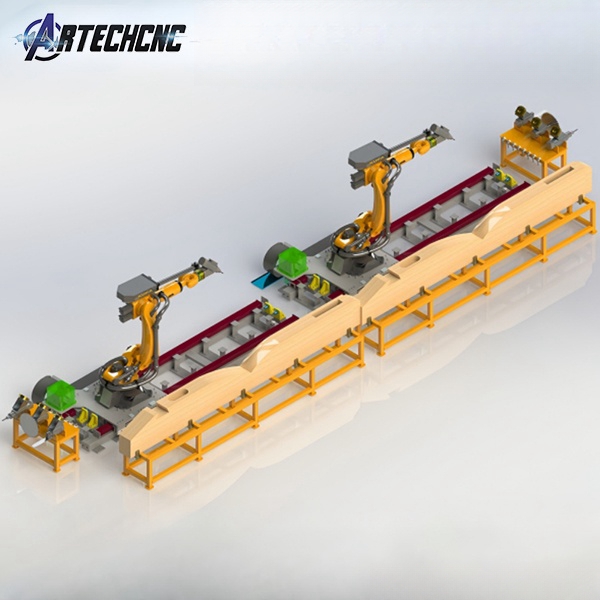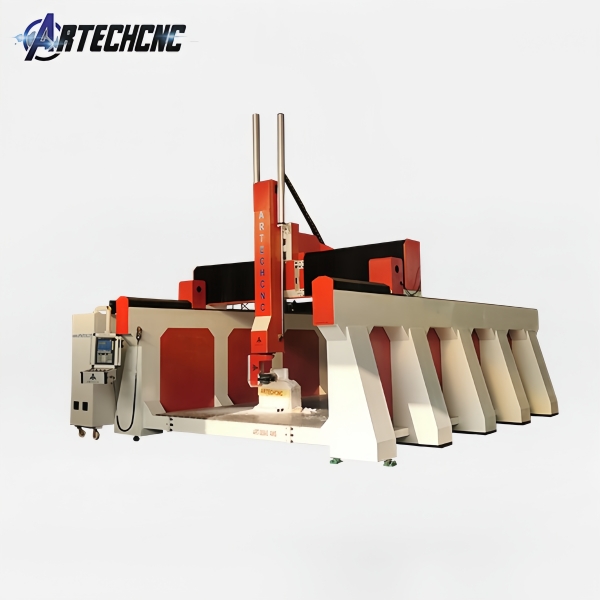ARTECH CNC Conducts On-Site Milling Robot Arm Testing at Factory, Accurate Foam Model Carving Delivers Tangible Value for Customer
Recently, a technical team from ARTECH CNC COMPANY (hereinafter referred to as "ARTECH CNC") traveled to a customer’s factory specializing in foam model manufacturing—focused on architectural sand table prototypes and film/television scene props—to conduct a comprehensive functional test of the newly delivered milling Robot Arm. The on-site test, designed to validate the equipment’s adaptability to foam processing and alignment with the customer’s production needs, concluded with the robot arm successfully carving high-precision foam components, earning immediate praise from the customer’s production and technical teams.
Prior to the test, the ARTECH CNC team spent 2 hours on pre-test preparations to ensure seamless execution. First, they inspected the mechanical structure of the milling Robot Arm—checking the tightness of the spindle, the flexibility of the 6-axis joint movement, and the stability of the electrical connection—to rule out any potential hardware issues. Given the customer’s primary use of EPS and EVA foam (materials prone to edge chipping and melting during processing), the team also pre-configured three sets of foam-specific processing parameters: a low rotation speed of 900-1100r/min (to avoid foam melting from high-speed friction), a moderate feed rate of 50-80mm/min (to prevent rough edges), and a reduced tool pressure of 0.2N (to protect the foam’s lightweight structure). These parameters were refined based on ARTECH CNC’s years of experience in foam processing, ensuring optimal compatibility with the customer’s materials.
The formal test centered on two of the customer’s most common production scenarios. For the first scenario—carving a 1-meter-tall architectural sand table wall component with intricate details (including 5mm-wide window grids and 3mm-deep decorative grooves)—the team imported the customer’s CAD design files into the robot arm’s control system. The arm then used its built-in visual positioning sensor to scan the foam blank (a 1200x800x100mm EPS block), automatically calibrating the carving origin to align with the design coordinates. Once initiated, the robot arm moved smoothly across the foam surface: its spindle rotated steadily, and the carbide milling tool (custom-selected for foam processing) carved the window grids and grooves with remarkable precision. After 32 minutes of continuous operation, the finished component was inspected using a digital caliper—showing a dimensional error of ≤0.08mm for the window grids and a groove depth deviation of only 0.03mm, far exceeding the customer’s required tolerance of ±0.2mm.
The second test scenario targeted a more complex film/television prop: a 60cm-long curved foam rock model with a hollowed-out interior (mimicking a natural cave texture). To achieve the organic curved surface and precise hollow structure, the ARTECH CNC team activated the robot arm’s 3D path planning function, which converted the prop’s 3D model into a layered milling path. During carving, the team used a portable monitor to track real-time data—including spindle temperature, feed rate, and tool wear—to ensure no deviations. When a minor unevenness was detected on one section of the curved surface, the team adjusted the path compensation parameter on the control panel within 2 minutes, and the robot arm immediately corrected its movement. The final prop, completed in 45 minutes, featured a smooth, burr-free curved surface and a perfectly shaped hollow interior, meeting the customer’s standards for on-set prop quality.
“The difference from our old manual and semi-automatic equipment is night and day,” said the customer’s production manager, Mr. Li, after examining the test components. “Previously, carving a sand table wall component like this would take 2-3 hours of manual work, with at least 10% of pieces discarded due to precision issues. But the milling Robot Arm finished it in 30 minutes, and every detail is flawless. For our film props, which often require complex curved shapes, the robot arm’s 3D carving capability will cut our production time by half.” He also noted that the customer plans to use the robot arm to take on larger orders—such as 3-meter-tall foam statues for theme parks—now that its performance has been validated.
Following the test, the ARTECH CNC team provided a 1-hour on-site training session for the customer’s operators. They demonstrated how to switch between the pre-configured parameter sets, how to troubleshoot common issues (like foam debris clogging the spindle), and how to import custom design files for one-off prop orders. The team also left a detailed test report—including parameter settings, carving time records, and quality inspection data—to serve as a reference for the customer’s daily operations.
As an enterprise specializing in customized CNC solutions for the foam, wood, and metal processing industries, ARTECH CNC emphasizes “on-site validation of value” in its service model. This on-site test not only confirmed the milling Robot Arm’s technical capabilities but also deepened the customer’s trust in ARTECH CNC’s expertise. Looking ahead, the company will arrange a follow-up visit in 2 weeks to check the robot arm’s performance in formal production and provide further parameter optimization, ensuring the customer can maximize the equipment’s efficiency for long-term growth.

